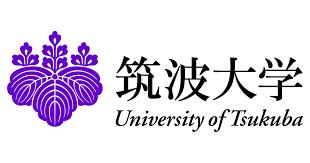AIMS
TPNC is a conference series intending to cover the wide spectrum of computational principles, models and techniques inspired by information processing in nature. TPNC 2020 & 2021 will reserve significant room for young scholars at the beginning of their career and particular focus will be put on methodology. The conference aims at attracting contributions to nature-inspired models of computation, synthesizing nature by means of computation, nature-inspired materials, and information processing in nature.
Previous events took place in Tarragona, Cáceres, Granada, Mieres, Sendai, Prague, Dublin and Kingston.
VENUE
TPNC 2020 & 2021 will take place in Tsukuba, located northeast of Tokyo and the seat of a science city bearing witness of a place oriented to scientific innovation. The venue will be:
tba
STRUCTURE
TPNC 2020 & 2021 will consist of:
- invited talks
- peer-reviewed contributions
- posters
SCOPE
Topics include, but are not limited to:
Theoretical contributions to:
- — affective computing
- — ambient intelligence
- — ant colony optimization
- — approximate reasoning
- — artificial immune systems
- — artificial life
- — cellular automata
- — cognitive computing
- — cognitive robotics
- — collective intelligence
- — combinatorial optimization
- — computational intelligence
- — computing with words
- — developmental systems
- — DNA computing
- — evolutionary algorithms
- — evolutionary computing
- — evolutionary game theory
- — fuzzy logic
- — fuzzy sets
- — fuzzy systems
- — genetic algorithms
- — genetic programming
- — global optimization
- — granular computing
- — heuristics
- — intelligent agents
- — intelligent control
- — intelligent manufacturing
- — intelligent systems
- — intelligent user interfaces
- — machine intelligence
- — membrane computing
- — metaheuristics
- — molecular programming
- — multiobjective optimization
- — neural networks
- — quantum communication
- — quantum computing
- — quantum information
- — quantum metrology
- — rough sets
- — soft computing
- — swarm intelligence
- — swarm robotics
- — unconventional computing
Applications of natural computing to:
- — algorithmics
- — bioinformatics
- — cryptography
- — design
- — economics
- — graphics
- — hardware
- — human-computer interaction
- — knowledge discovery
- — learning
- — logistics
- — medicine
- — natural language processing
- — pattern recognition
- — planning and scheduling
- — programming
- — telecommunications
- — web intelligence
A flexible "theory to/from practice" approach would be the perfect focus for the expected contributions.
QUESTIONS AND FURTHER INFORMATION
david (at) irdta.eu
Submissions
Authors are invited to submit non-anonymized papers in English presenting original and unpublished research. Papers should not exceed 12 single-spaced pages (all included) and should be prepared according to the standard format for Springer Verlag's LNCS series (see http://www.springer.com/computer/lncs?SGWID=0-164-6-793341-0).
Upload submissions to:
https://easychair.org/conferences/?conf=tpnc20202021
PUBLICATIONS
A volume of proceedings published by Springer in the LNCS series will be available by the time of the conference.
A special issue of Neural Computing and Applications (2020 JCR impact factor: 5.606) will be later published containing peer-reviewed substantially extended versions of some of the papers contributed to the conference. Submissions to it will be by invitation.
REGISTRATION
The registration form can be found at:
https://irdta.eu/tpnc2020-2021/registration/

